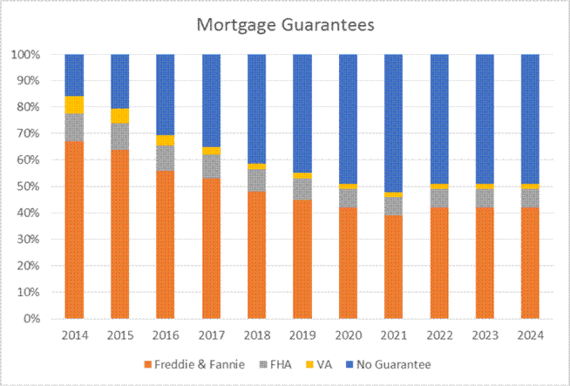For the past few years, we have argued that the economy needs to continue the process of deleveraging as consumer and government debt levels remain far too high from an historical perspective. While we agreed with the Fed's initial aggressive action to save us from financial catastrophe during the throes of the financial crisis, we also said that the continuation of unprecedented Fed monetary easing is fraught with risk. Among these risks are financial-market distortions, asset bubbles, financial repression and moral hazard. The Fed's path of solving a debt problem with more debt (through policies that lower interest rates) is ill-conceived and short-sighted. In brief, we have called for the Fed to stand down.
But for purposes of this piece, let's assume that the encouragement of more debt-induced consumer and government spending is a worthy goal. Let's assume that the only thing standing between us and a GDP growth rate of 4% or better is the further expansion of credit to those who are more than willing to spend it. If this is the Fed's goal (and it sure seems like it is), then why have the Fed's efforts not produced the desired effect? Sure, some categories of consumer credit have risen over the past couple of years. We have seen huge growth in government-backed student loans and a resurgence in auto lending. The former has done little but drive up the cost of higher education to levels that are causing many prospective college students to question the value of their investment. Can this be considered economic progress? The latter, auto lending, has undoubtedly supported the resurrection of the auto industry. But the widespread expansion of credit to car-buyers, especially to sub-prime borrowers, is beginning to cause some industry observers to cry "bubble."
Is this economic progress?
Meanwhile, the biggest category of consumer credit, the mortgage market, remains significantly depressed compared to the levels prior to the financial crisis. Housing prices have rebounded somewhat, but banks remain reluctant to loosen lending standards enough to drive housing activity to levels desired by the Fed. Even today, some 85% of new mortgage originations are either sold to Fannie or Freddie, or they receive the backing of the federal government through the FHA or VA. The Congressional Budget Office, which performs non-partisan analyses of the mortgage market, says: "Before the recent financial crisis, federal agencies and the government-sponsored enterprises Fannie Mae and Freddie Mac guaranteed (meaning, assumed the financial risk for) about half of the total volume of residential mortgages originated each year. In 2008, as the financial crisis worsened and the government took control of Fannie Mae and Freddie Mac, the situation changed dramatically: By 2012, more than 95 percent of new mortgages were federally guaranteed." This percentage has come down somewhat, but remains at about 85%.
- First, and probably foremost, banks have had to build capital and liquidity levels to conform to new (and changing) regulatory requirements. This process has inhibited loan growth at the banks.
- Despite efforts by bank regulators to drive credit expansion, banks have been penalized by regulators for the risky assets they hold. This contradiction of regulatory agendas has been driving bank management teams mad.
- Faced with a slew of lawsuits over mortgages sold to Fannie Mac and Freddie Mac in past years, banks have tightened underwriting standards so as to minimize future "put-backs".
- Many banks are reluctant to underwrite mortgages for their own portfolio as they do not want to own assets of such long duration and carrying such low interest rates. Banks typically attempt to "match-fund" their assets and liabilities in order to minimize interest-rate risk. The Fed's QE has pushed rates so low as to make mortgages uneconomical for banks.
- The securitization market for private-label mortgage-backed securities (MBS) had essentially closed during the financial crisis, and it has yet to resuscitate.
- Many regulations are still being written. For example, banks do not know how much credit risk they will have to retain in the process of securitizing a pool of mortgages. Without knowing all the rules, it's hard to make sound investment decisions.
The CBO has projected that, over the next ten years, the percentage of new mortgage loans carrying federal agency guarantees will revert back to the average prior to the financial crisis (~50%). The table below shows the CBO's projections. The hope of all involved is that once all the new regulations have been written, banks will be more inclined to loosen underwriting standards, execute private-label securitizations, and retain more mortgage loans for their own portfolios. One factor that may encourage banks to originate more mortgage loans could be higher mortgage rates. Only time will tell.
For our part, it's hard to justify such optimistic projections given the continuing uncertainty faced by banks. But perhaps this misses the bigger issue. We think the Fed and others should be careful what they wish for. Is it wise to be encouraging the return of looser (and perhaps more reckless) underwriting standards? Do we want people to buy cars and houses and college tuition if they cannot really afford these things? Furthermore, if mortgage credit does loosen significantly, won't housing prices follow the same path as stocks and college tuitions? And if housing prices do spike meaningfully higher, won't this create another affordability problem for prospective first-time homeowners?
This is the crux of the problem created by the Fed. In our view, the Fed needs to account for the prices of things like stocks, houses and college tuition as they formulate monetary policy. Inflation and inflation-expectations may be "well-anchored" in the Fed's eyes, but those seeking to buy medical care, a college education, their first house or just save for retirement (through the purchase of stocks, for example) may beg to differ. It's time to get off the dole and let the markets lead the way.
Source: Congressional Budget Office
